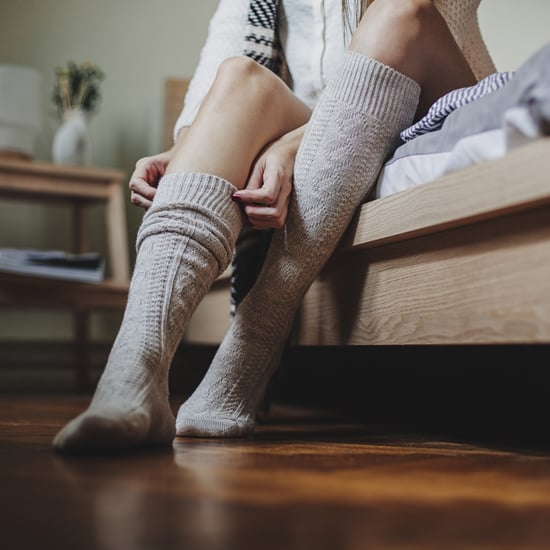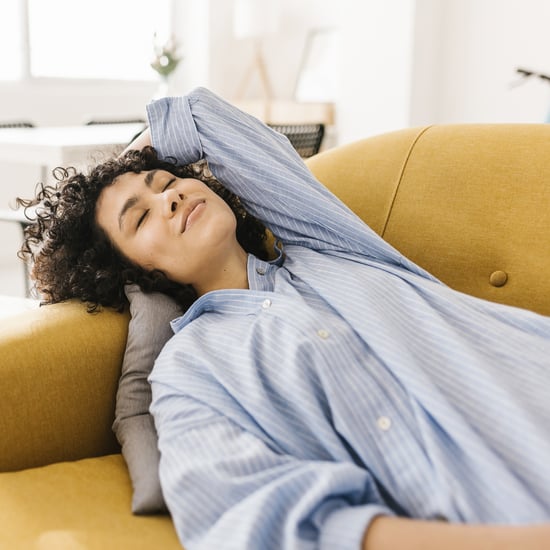Why Can't I Stop Moving When I'm Trying to Sleep?
If You Ever Feel So Restless at Night That You Can't Sleep, This Condition Could Be to Blame

Climbing into bed should be the most soothing part of your day, but if you find it near impossible to lay still while you're trying to drift off to sleep, you may want to talk to your doctor. "Restless legs syndrome (RLS) is a condition in which individuals feel a deep, irresistible urge to move their legs," W. Christopher Winter, MD, a board-certified sleep specialist at Charlottesville Neurology and Sleep Medicine in Virginia and author of The Sleep Solution: Why Your Sleep is Broken and How to Fix It, told POPSUGAR. Sound familiar? While RLS isn't necessarily painful, it can be frustrating and uncomfortable — and it's much more common in young women than you'd think.
In fact, RLS can pop up as early as your 20s, especially if you have children. "Pregnancy can exacerbate the problem. The condition is linked to iron levels in the body," Dr. Winter explained — some of which is diverted to the baby during pregnancy. But that's not the only trigger. "Thyroid issues can create RLS, too. It's also highly hereditary," he said. Additionally, "some drugs like lithium and tricyclic antidepressants can cause or worsen the condition."
So, how exactly is RLS diagnosed? While symptoms are worse at night — which can be disruptive to your sleep — it's not a sleep disorder in the traditional sense, which means a sleep study isn't necessary. Instead, your doctor will ask the following questions:
- Do you feel an irresistible urge to move your legs?
- Is the feeling more common at night?
- Is it worse during periods of inactivity?
- Does standing up or movement make it better or cause it to go away completely?
If your answers seem to confirm RLS, your doctor will likely prescribe medication or supplements like iron or magnesium to help treat the symptoms. Some people find hot baths or evening workouts to be helpful, too, as well as weighted blankets. "There's also a vibrating pad people can sleep on, which lessens the sensation," Dr. Winter said. Keep working with your doctor until you find relief.






